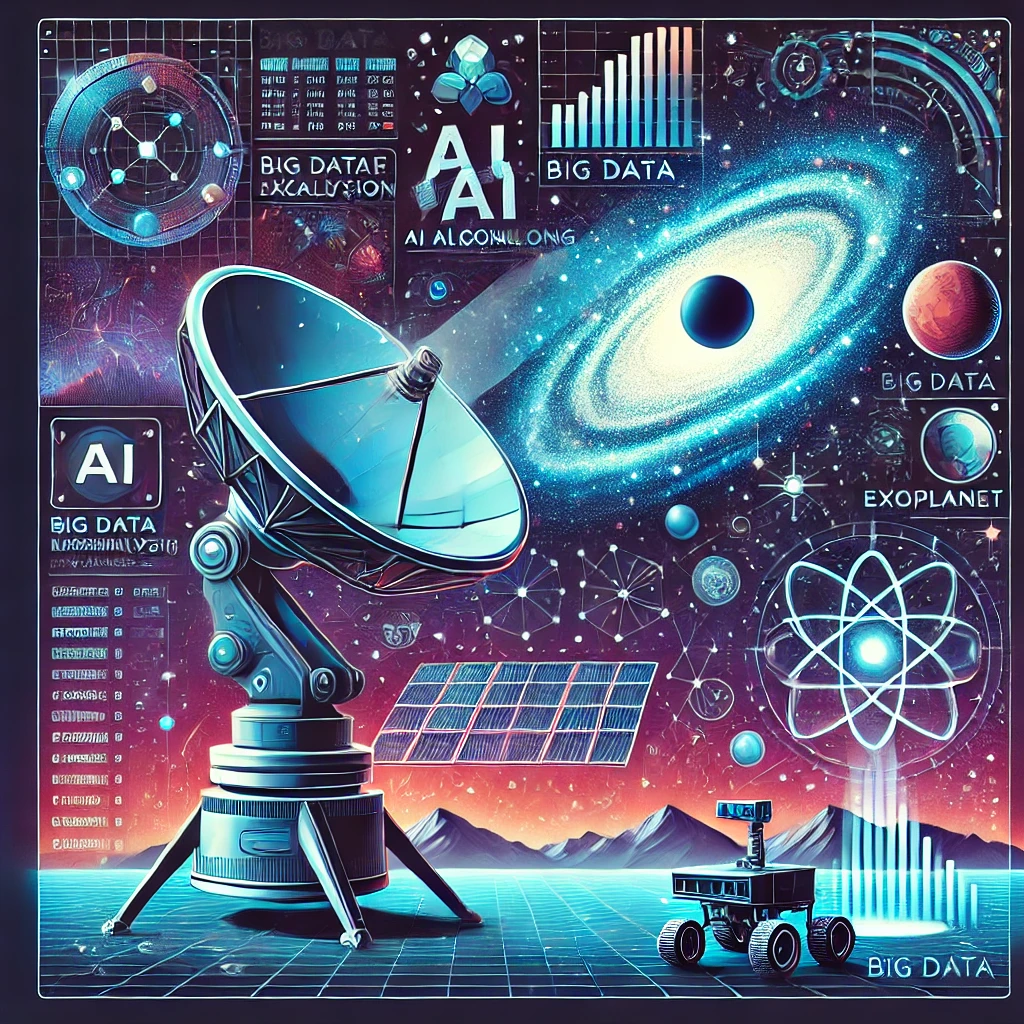AI is used in the space sector to automate data analysis, model phenomena, and make informed decisions.
- Processing Data from Telescopes
Modern telescopes, such as Hubble and James Webb, generate petabytes of data annually.
Exoplanet Detection: AI analyzes variations in starlight to identify planets passing in front of stars.
Object Classification: Machine learning quickly identifies types of galaxies, stars, and other celestial objects.
SETI Signal Search: AI filters out noise in radio signals to search for potential extraterrestrial life.
- Space Missions and Probes
AI supports the exploration of distant planets and systems.
Mars Rovers: Algorithms enable rovers like Perseverance to autonomously select interesting objects for study.
Route Optimization: AI determines the best paths for probes to maximize their capabilities.
Onboard Data Analysis: AI processes collected data in real time, reducing delays in transmission to Earth.
- Universe Modeling
AI enables the creation of models simulating the evolution of the universe.
Black Hole Analysis: Algorithms help model the interaction of matter around black holes.
Dark Matter Studies: AI analyzes gravitational effects to better understand dark matter’s impact on galaxies
Automation and Decision-Making
- Spacecraft
AI ensures autonomous control of spacecraft, especially during missions beyond the solar system.
Autonomous Navigation: Algorithms allow spacecraft to adjust their trajectories independently.
Incident Response: AI quickly evaluates data and makes decisions in case of system failures.
- Space Colonization
For future missions to Mars and other planets, AI will play a critical role in:
Managing resources.
Ensuring colony safety.
Analyzing the environment’s habitability.
Real Examples of AI in Space Exploration
- Google AI and NASA: AI algorithms helped identify exoplanets in data collected by the Kepler telescope.
- Mars Rover Perseverance: Uses AI to autonomously select interesting rocks and samples.
- Euclid Mission: The European Space Agency employs AI to analyze dark matter and energy.
Benefits of AI in Space Exploration
Speed: AI processes data significantly faster than humans.
Accuracy: Algorithms minimize errors during analysis.
Efficiency: Automation allows scientists to focus on key discoveries.
Scalability: AI can handle enormous volumes of data simultaneously.
Challenges and Prospects
Despite its achievements, AI in space exploration faces certain challenges:
Data Quality: AI outcomes depend on data quality, which can sometimes be limited or noisy.
Computational Resources: Processing large datasets requires powerful hardware.
Autonomy: Distant missions demand even more reliable algorithms capable of operating without human intervention.
Artificial intelligence is becoming a key tool in space exploration, enabling the analysis of massive datasets and facilitating scientific breakthroughs at unprecedented speeds. Thanks to AI, we are gaining a deeper understanding of the universe and taking our first steps toward exploring distant planets.

